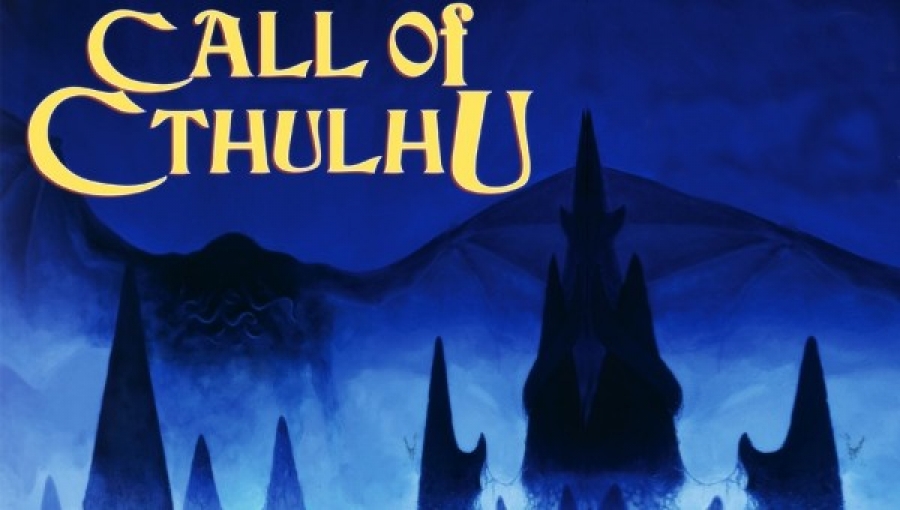As Halloween is fast approaching, the Fanboy Comics staff and contributors decided that there was no better way to celebrate this horrifically haunting holiday than by sharing our favorite scary stories! Be they movies, TV shows, video games, novels, or anything other form of entertainment, members of the FBC crew will be sharing their “scariest” stories each day leading up to Halloween. We hope that you will enjoy this sneak peek into the terrors that frighten Fanboy Comics!
You’re probably thinking, “Really, Kristine? RPGs can’t be scary.” While it’s true that an RPG system by itself is not that scary, when coupled with the right GM, it can create the perfect storm. While in my case the scariest and creepiest game I’ve ever played in was a Mage: The Awakening game (All the GM’s doing and mostly not on purpose. The full story is recounted at the end of Worlds That Never Were Episode 2), the RPG system that is the scariest in my opinion is the master, Call of Cthulhu. Here’s why:
It’s Simple
The smartest thing Call of Cthulhu (CoC) does is that it removes the need for a complex set of rules, which can take players out of the action. CoC rolls are still important and help further the story, but there’s not some greater strategy, or an overwhelming list of options. CoC features percentile rolls for just about everything, so players can roll, get their result, and focus back in on the details.
Character Fragility
In the RPG community there is a running joke that Call of Cthulhu is a game where the best you can hope for is that your character survives the longest. This is because CoC characters are remarkably fragile. In most RPGs the results of a fistfight are shrugged off and a gun fight might (key word, might) involve some first aid. In CoC every encounter can prove deadly, whether it’s falling down a set of rickety stairs in a haunted house, being bitten by a guard dog, or a recently summoned Dimensional Shambler clawing your eyes out. More than most RPG systems, failure is a possibility in Call of Cthulhu. You don’t know if opening that door is going to be the last action your character ever performs, or if turning on your flashlight is going to attract the monster that ends your life. It’s not unheard of that players become too afraid to take actions, which in itself could spell the end of that character.
Sanity
But, it’s not just characters’ lives that are at stake; they can also lose their minds. CoC tracks a character’s sanity with a reserve of points that dwindle over time. Seeing something out of the ordinary, like a desecrated corpse rising to its feet or a room filled with blood can cause characters to slowly lose their minds point by precious point. Quick sanity loss can lead to a character lying in a huddled heap or fleeing for their lives. Over the long term, characters might find themselves with their lives but with their minds completely gone as they enter an asylum.
The Mythos
Call of Cthulhu is based on the works of H.P. Lovecraft. It expands upon many of his original designs and provides a vast array of monsters, magic, and cults to create cases worth investigating, many of which involve far more powerful and dangerous beings than a group of humans could ever destroy. But, it’s not about the power, it’s about the subtlety. The fact that a character could find her mind switched with that of a monster, leading her friends to kill her and the beast to escape, or that one set of problems is a ruse to keep the characters away from the real threat.
There are many excellent pre-published adventures for CoC. The corebook itself includes several, and there are far more available, including many based off of Lovecraft’s work that can provide just the right touch to a campaign with some of the scariest encounters imaginable.
The Slow Reveal
The other thing CoC does well is investigation. It’s not a game of running and gunning. It’s a game of slow reveals, bits of paranoia. Why does that painting’s eyes keep following me? Wait a minute. Is this book bound in human flesh? Nothing beats that feeling of a GM sliding over a newspaper clipping your character uncovered and reading about the 20 horrible things that happened related to this case; the things that, in all likelihood, are about to happen to your character.
Are You Sure You Want to Read That Book?
While all of the tools above could be used by the wrong GM into creating a punishing game instead of a scary game, I believe that in the right hands they are the perfect mechanics for crafting a horror-themed game. If you’re looking to get started on your own Call of Cthulhu adventures or to learn more about the system, there’s a quickstart guide available for free here, which includes information on how to make characters and a starting adventure. You might learn that tabletop RPGs can be scary after all.

